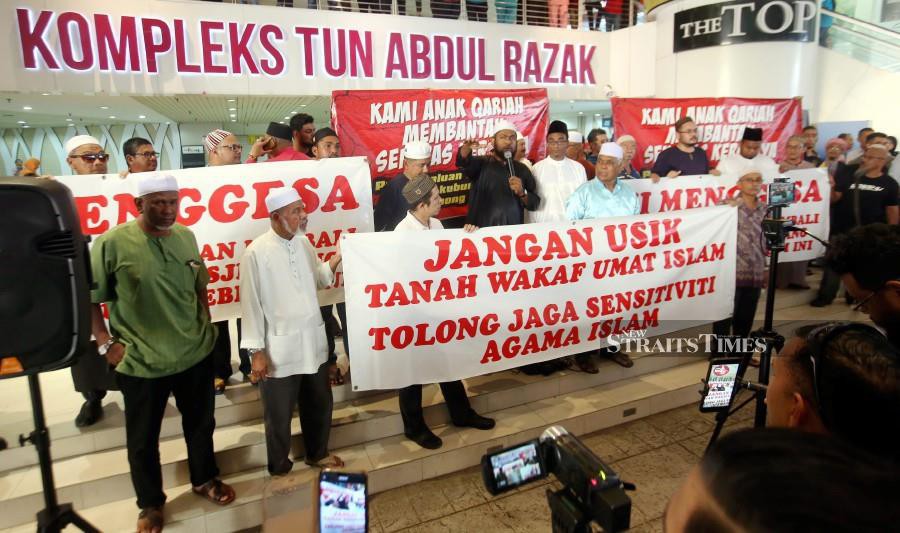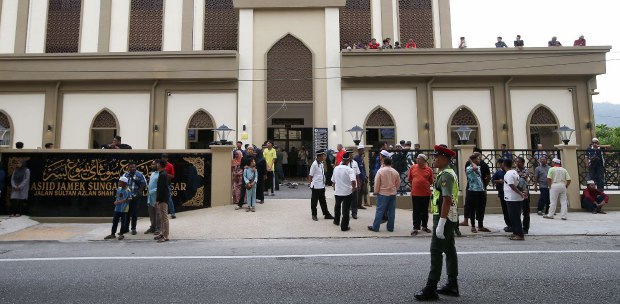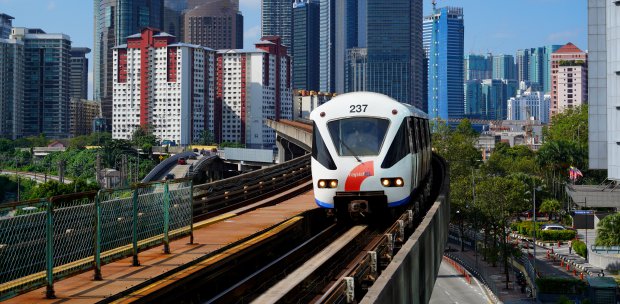Masjid Jamek Sungai Nibong Besar, built circa 1880, is among the oldest mosques in Penang and a historical symbol for the Muslim community in the industrialised northern state.
Located at the edge of Jalan Sultan Azlan Shah in Bayan Lepas, it is one of the main routes in the city. It is the stopover of choice for government and private sector employees to perform Friday prayers.
The mosque’s position next to the Sungai Nibong Besar Muslim cemetery makes it an important institution for residents in Sungai Nibong Besar, covering Bukit Kecil, Sungai Nibong Tengah and Jerjak Beach.
It is no wonder then that in 2011, the mosque committee proposed to expand the mosque. It obtained approval from the authorities in 2012.
In 2015, the committee learned about the proposal to build a light rail transit (LRT) line in front of the mosque. The move was opposed by the mosque committee. It was seen as an attack on the religious freedom of the Muslim community of Bayan Lepas.
This decision violates Article 11(1) of the Federal Constitution on freedom to practise religion, Article 18 of the Universal Declaration of Human Rights, Article 10 of the Cairo Declaration on Human Rights in Islam and Article 22 of the Asean Human Rights Declaration.
An agreement was reached between the mosque construction committee and the LRT developer in 2016, whereby the LRT line would be built at the back of the mosque.
The Malaysian Alliance of Civil Society Organisations (Macsa) supports the rights of the Muslim community in Bayan Lepas and Penang to maintain and expand Masjid Jamek Sungai Nibong Besar in accordance with their fundamental right to freedom of religion and worship pertaining to religious liberty.
Macsa condemns the breach of the agreement as being against the rights, and cautions the developer and the Penang government against violation of such freedom.
Macsa believes that the LRT line, if built in front of the mosque, will affect the congregation of thousands of Muslims, especially on Fridays.
Due to its historical significance, it is crucial that the reconstruction of the mosque take into account the aesthetic value attached to the Muslim community and Penang’s history.
Macsa believes that the LRT line will pose a safety risk to worshippers and cause noise pollution. It calls on Malaysians to oppose the construction of the LRT line in front of the mosque and urges the state government and the developer to abide by the agreement.
Azril Mohd Amin
Chief executive, Centre for Human Rights Research & Advocacy; chairman, Malaysian Alliance of Civil Society Organisations
Associate Professor Dr Rafidah Hanim Mokhtar
President, International Women & Alliance for Family Institution and Quality Education; co-chairmain, Malaysian Alliance of Civil Society Organisations





